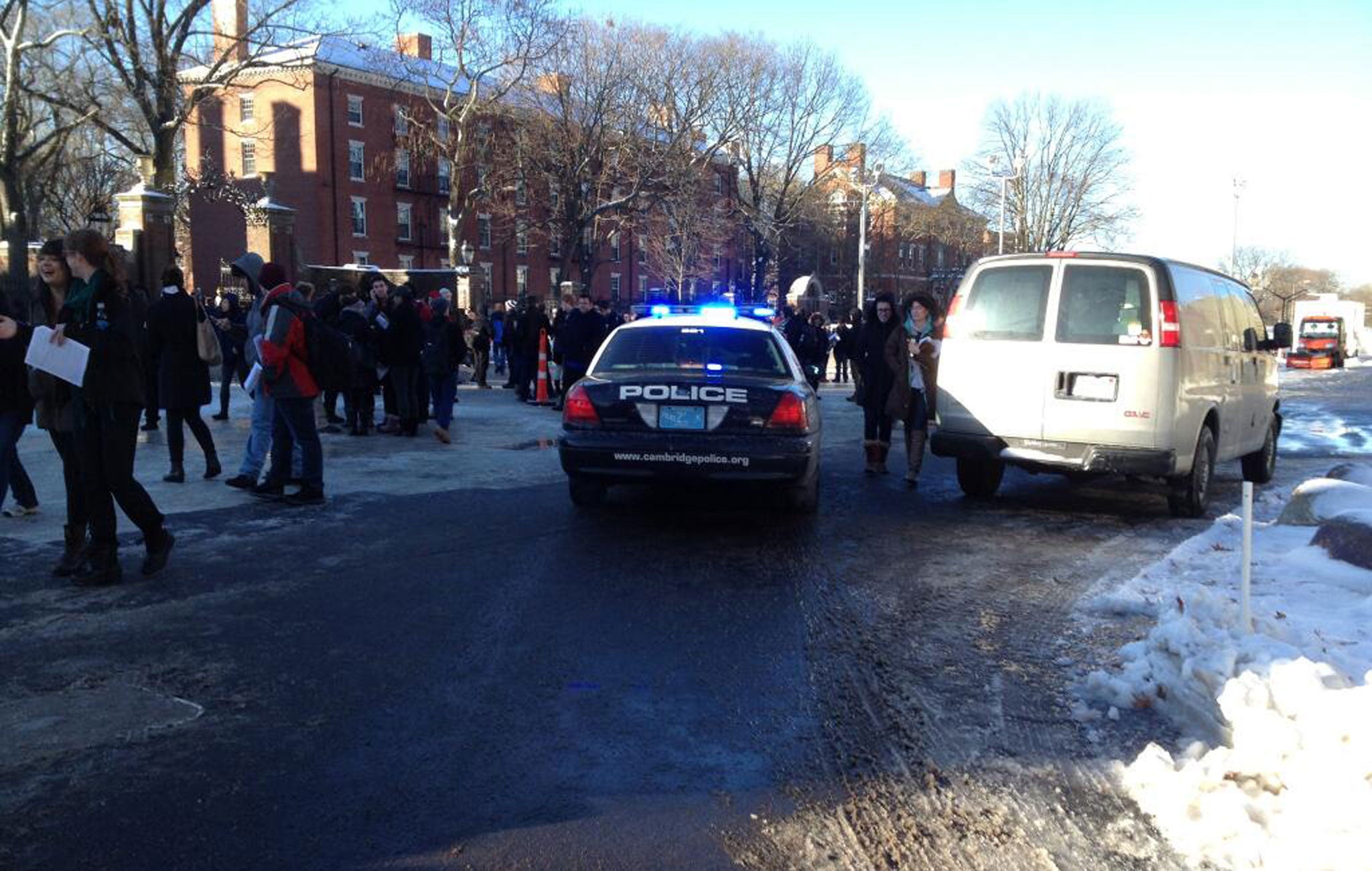Harvard bomb scare was a hoax, investigators say
One student has been charged with phoning in a fake threat

Your support helps us to tell the story
From reproductive rights to climate change to Big Tech, The Independent is on the ground when the story is developing. Whether it's investigating the financials of Elon Musk's pro-Trump PAC or producing our latest documentary, 'The A Word', which shines a light on the American women fighting for reproductive rights, we know how important it is to parse out the facts from the messaging.
At such a critical moment in US history, we need reporters on the ground. Your donation allows us to keep sending journalists to speak to both sides of the story.
The Independent is trusted by Americans across the entire political spectrum. And unlike many other quality news outlets, we choose not to lock Americans out of our reporting and analysis with paywalls. We believe quality journalism should be available to everyone, paid for by those who can afford it.
Your support makes all the difference.A Harvard student has been charged with inventing a bomb hoax, allegedly in order to get out of an exam.
The university was forced to evacuate four campuses on Monday due to the threat, leaving exams were cancelled while investigators spent hours fruitlessly trying to find the explosives.
Eldo Kim, 20, an undergraduate psychology scholar and research assistant has been accused of sending emails with the subject line “Bombs placed around campus”, according to American federal prosecutors. The emails claimed that bombs had been placed in two out of four buildings, one of which Kim had been due to take an exam in at 9am that morning.
Boston CBS reports that the emails read “shrapnel bombs placed in science center, sever hall, emerson hall, thayer hall, 2/4. guess correctly. be quick for they will go off soon.”
He allegedly sent it to the university using Tor, a service which is designed to anonymise your identity on the internet. Investigators said that once he had heard the alarms going off “he knew his plan had worked”.
An FBI affidavit shows that Kim admits to having sent emails to five or six Harvard email addresses he chose at random. They were sent to the university police, the president of the Harvard newspaper and university officials.
He is set to appear in court today, charged with emailing a bomb threat. He faces a maximum of five years’ imprisonment and a $250,000 (£150,000) fine if found guilty.

Join our commenting forum
Join thought-provoking conversations, follow other Independent readers and see their replies
0Comments